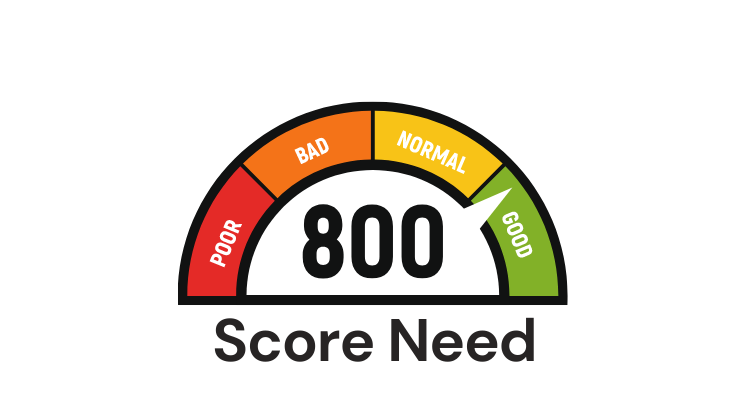In the complex world of personal finance, understanding your credit score is critical. One common query that baffles many is, “Why do credit scores start at 300?” To unravel this mystery, we first need to delve deep into the intricacies of credit scores, their calculation, and their significance.
What is a Credit Score?
A credit score is a numerical representation of an individual’s creditworthiness, primarily reflecting their history of borrowing and repaying. It’s a three-digit value, typically ranging between 300 and 850, calculated using a statistical model and information from your credit reports.
The Credit Score Spectrum
Your credit score isn’t inherently set at a certain number. Instead, the scale of credit scores begins at 300 and can reach up to 850. The higher the score, the better your credit standing. However, you don’t start with a credit score of 300 and gradually work your way up. Instead, your score is computed using a proprietary formula that considers various factors related to your financial behavior.
Who Determines Your Credit Score?
Credit scores are primarily determined by credit scoring companies, with FICO® and VantageScore® being the most commonly used models in the United States. Both models use complex algorithms that analyze your financial transactions and credit history to compute your credit score.
Eligibility for a Credit Score
To receive a credit score, you must meet specific criteria. Most importantly, you should have at least one credit account that has been open for six months or more and has been reported to a credit bureau within the past six months. This could be one or multiple accounts. Until you meet these requirements, you won’t have a credit score and will be considered credit invisible.
Calculating Your Credit Score
Your credit score is calculated using five key elements, each carrying a particular weightage in the formula. These elements are:
- Payment History (35%): Reflects your record of making payments on time. Late payments or other irresponsible financial behaviors can quickly lower your score.
- Amounts Owed (30%): This includes your overall balance and your outstanding balance as a percentage of your credit limit. High utilization of available credit can negatively impact your score.
- Length of Credit History (15%): The duration of your credit history, including the age of your oldest account and the average age of all your accounts.
- New Credit (10%): This includes credit inquiries and new credit accounts. Numerous recent inquiries can negatively impact your score, especially when you have a limited credit history.
- Credit Mix (10%): The variety of credit accounts you have, such as credit cards, car loans, and mortgages.
Impact of Your Credit Score
Your credit score can significantly influence multiple aspects of your life:
- It determines your eligibility for loans, credit cards, and other credit products.
- It influences the interest rates you qualify for.
- It can impact your employment prospects in certain industries, as employers may check credit scores during the hiring process.
- Landlords may also check credit scores and can deny you a lease if your score is too low.
The higher your score, the easier it is for you to get approved for loans, find a job in certain industries, and even secure a place to live.
Building a Better Credit Score
FICO® Scores in the Very Poor range often reflect a history of credit missteps or errors, such as multiple missed or late payments, defaulted or foreclosed loans, and even bankruptcies.
Your FICO® Score report can help you prioritize any credit missteps you should address first, but it’s also good ideas to get your credit reports from Experian and the other two national credit bureaus, Equifax and TransUnion. Familiarizing yourself with their contents can help you better understand the missteps in your credit history, so you’ll know what to avoid as you work to build up your credit.
Improving Your Credit Score
Improving your credit score is a gradual process. It can’t be done quickly, but you can start to see some steady score improvements within a few months if you begin immediately to develop habits that promote good credit scores.
- Pay your bills on time: Paying bills consistently and on time is the best thing you can do to improve your credit score.
- Keep your balances low: Keeping your balances low on your credit cards can help your credit utilization rate, which is a ratio that reflects how much of your available credit you’re using compared with how much you have available.
- Give it time: The age of your credit history is another factor that affects your scores, so consider your options if you’re looking to close an old account, which may be working in your favor because of its age.
- Credit mix: The FICO® credit-scoring model tends to favor users with multiple credit accounts, and a blend of different types of loans, including installment loans like mortgages or auto loans and revolving credit such as credit cards and some home-equity loans.
In Summary
Understanding why credit scores start at 300 is crucial for better financial planning. With knowledge of what a credit score is, how it’s calculated, and how it can impact your life, you can make informed decisions to build and maintain a healthy credit score. Remember, achieving a good credit score isn’t an overnight process, but with consistent, responsible financial habits, it’s definitely within reach.
